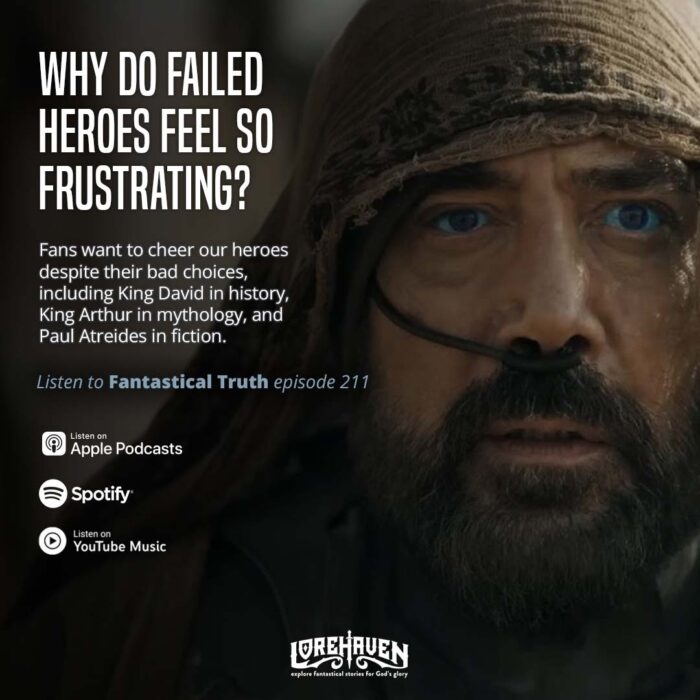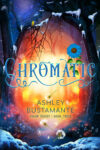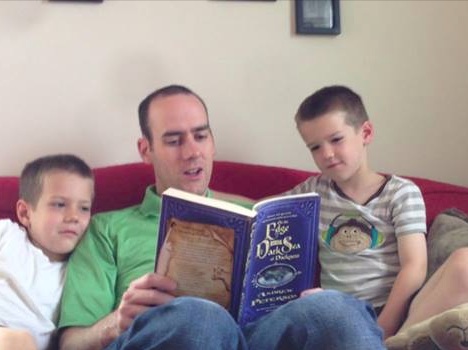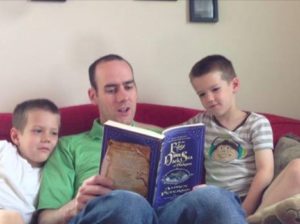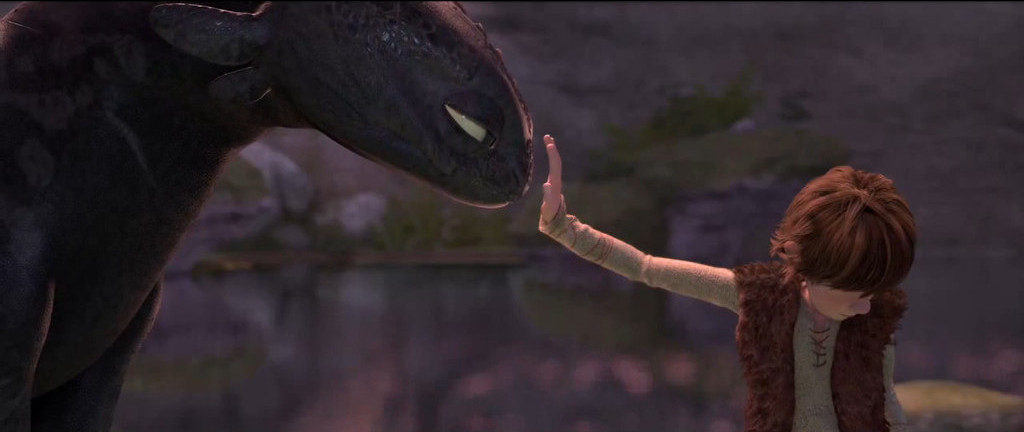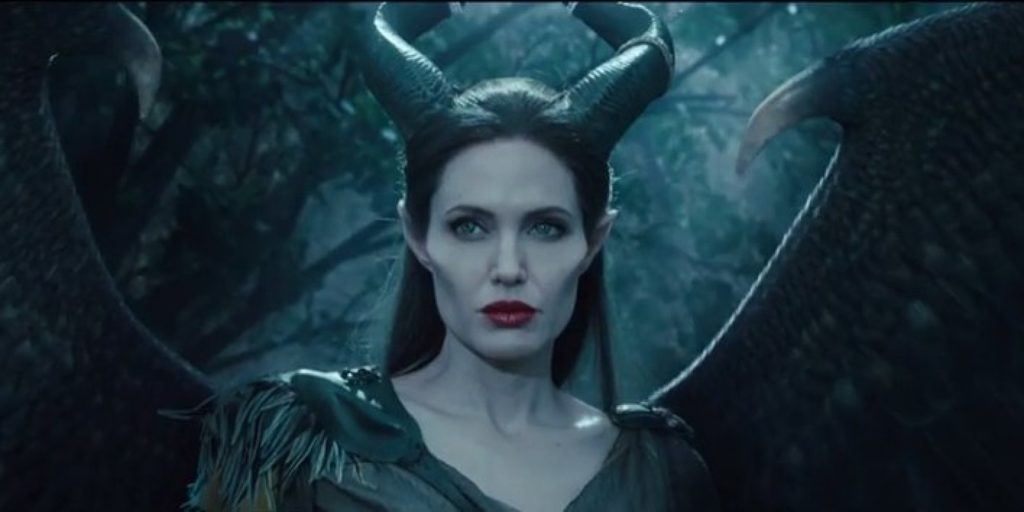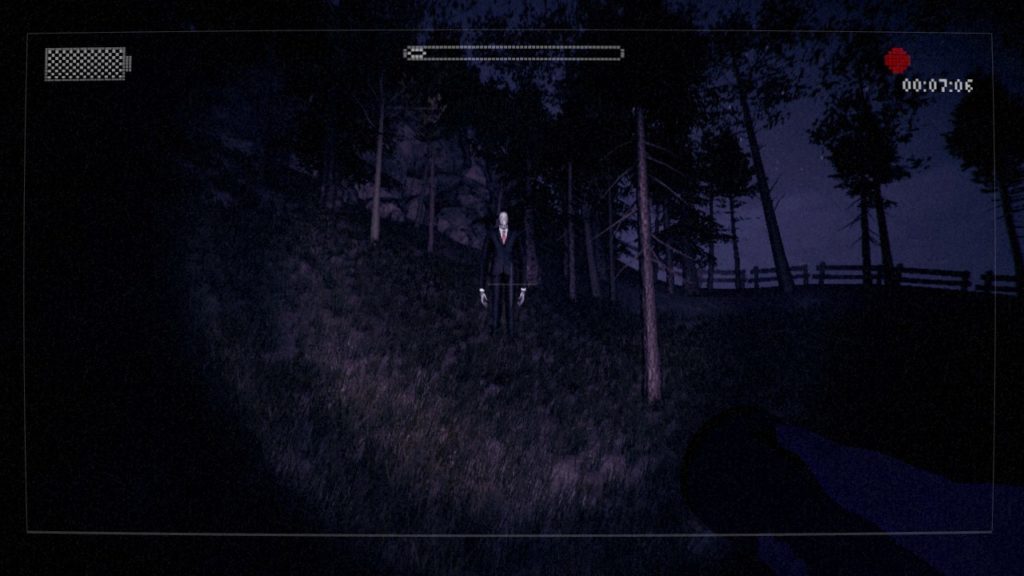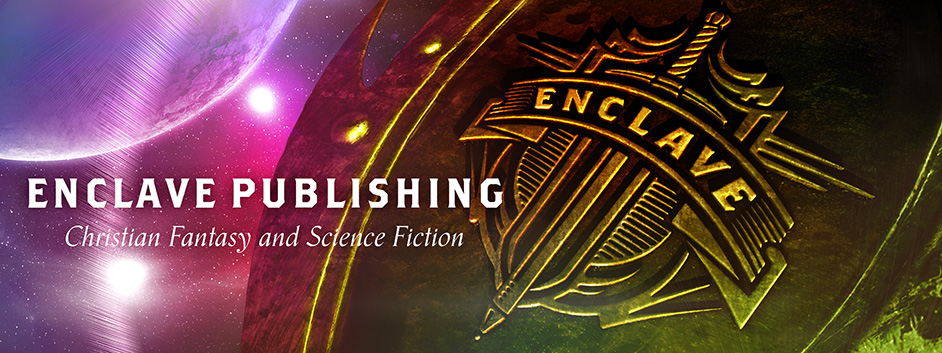
Fantastical-fiction publisher Marcher Lord Press. has had quite a fantastic quest of its own since author and editor Jeff Gerke started the independent publisher in 2008.
From Marcher Lordâs presses have come award-winning fantasy, science fiction, space opera, paranormal, steampunk, dystopian, parody fantasy, spiritual warfare, and more. Each novel has come from a professing Christian author yet is intended for any sort of reader. And so far you canât find them in bookstores â MLP has been an online-only deal.

Marcher Lord Press founder Jeff Gerke
Then owner/founder Gerke sold the publisher on Jan. 1 to Steve Laube, speculative-fiction fan, finder of many Christian authors of fantasy and sci-fi, and literary agent for other genres. Fans who keep track of these things wondered what would happen to the prominent publisher of many of their new favorite novels. Days later Laube provided assurances like this:
MLP has been and will continue to be the premier publisher of Science Fiction and Fantasy for the Christian market.
Laube also answered questions here at SpecFaith. Today he returns for another interview.
ESB: What led to your interest in publishing Christian speculative fiction?

Steve Laube, new owner of Marcher Lord Press â soon to become Enclave Publishing
Steve Laube: Iâve been a fan of science fiction and fantasy since I first read the Pellucidar and Barsoom books by Edgar Rice Burroughs in high school. In the 90s and early 2000s, during my tenure at Bethany House Publishers as an acquisitions editor I helped bring the genre into the CBA market with authors like Karen Hancock, Kathy Tyers, Randy Ingermanson, and John Olson.
From an industry perspective Iâve been a part of the genre for over 30 years going back to my days as a Christian bookseller in the 80s.
ESB: Last weekend you attended the Realm Makers conference and announced updates about MLP. How did fans react? Any other thoughts about the conference?
Steve Laube: The reaction to the announcement was electric. There was a lot of support and encouragement. There were a few who missed the original announcement and talked to me about the change. But once they heard the vision for Enclave Publishing the objections disappeared and they became enthusiastic about the future.
ESB: After the April poll with suggested changes, what led to the new name Enclave?
Steve Laube: The name change idea goes back to before I bought the company. At the time of purchase I thought it best to wait to consider that option and instead focus on infrastructure and overall strategy. In the Spring I went to a conference with the idea of privately asking a dozen industry friends about a possible name change. Some of them are very much inside the Speculative Faith community and others were not. To my surprise 100% thought it was a good idea. I also talked with Jeff Gerke about the name change idea and he wholeheartedly embraced it.
But to see if the opinion would extend into a larger audience I decided to try a survey of various names that had been offered as possibilities. Nearly 600 people gave their opinion. The bottom line was that the majority felt there should be a change even if there wasnât 100% agreement on what that change should be.
This made it clear that a change was warranted and I commissioned a designer to create the logo and banner artwork.
ESB: What will readers find the same or improved after MLP becomes Enclave Publishing?
Steve Laube: Most of the changes so far are behind the scenes. Accounting, acquisitions, editorial, and production schedules. The books we are publishing continue to be among the best our industry has to offer in the genre.
ESB: What would you say the greatest difference(s) are between MLP and Enclave Publishing?
Steve Laube: This is a difficult question to answer. Jeff Gerke did an amazing job with Marcher Lord Press and his legacy is secured. Ultimately, like most publishers, it comes down to the likes and dislikes of the person making the acquisition decisions. So to answer the question directly, the difference is the difference between Jeff and Steve. But I doubt many will be able to tell the difference because both of us have the same vision: to publish amazing and fantastic stories in the speculative fiction genre.
ESB: To some fans, the new name seems to reinforce negative perceptions of Christian fiction â some of which you addressed in your Monday announcement. Any further thoughts on that?
Steve Laube: I think I addressed that rather succinctly in the original announcement.
I am of the opinion that few readers know who publishes their favorite authors.
For example, who can name the publisher of Jim Butcherâs âDresden Filesâ books? Or who publishes Brandon Sanderson or Ian Douglas? Or in the Christian market who publishes Patrick Carr, Donita K. Paul, Ted Dekker, or Homer Hickam?
My point is that it is the author and the book itself that carries the day. In the end the publisher is the vehicle by which these great writers are able to get their books into the hands of their readers.
The publisher’s name has meaning, of course, and that is part of branding. The creation of an expectation of quality and exciting stories. The name Enclave Publishing does not suggest anything negative about Christian Fiction.
Online bookselling reduces the visibility of the publisher even further. You have to scan down the page to even find the name of the publisher.
 ESB: From a theological perspective, any thoughts about âChristian fictionâ and âgeneral fictionâ?
ESB: From a theological perspective, any thoughts about âChristian fictionâ and âgeneral fictionâ?
Steve Laube: I take this as a very serious question and one that is not be considered lightly.
The fear of many is that anything labeled Christian Fiction means it is âlazy,â âpreachy,â âshallowâ or worse. It has been an unfair connotation the category has fought to counter for the 30+ years Iâve been in the industry. It is usually delivered by those who either have not read anything by a great Christian writer or someone who simply does not like a particular genre (like romance novels).
The irony is that the general market has the same type of novels in their catalogs but you donât hear the same critique.
In my opinion there are two ways Christian fiction is different from general fiction. First is that the author is writing from a Christian worldview that permeates their stories. Second are the underlying themes that can be found in the best Christian fiction. There are themes of Hope, Redemption, and Truth. This does not mean there is a salvation scene in every book. It doesnât mean that every character has to have Bible verses on their lips when crisis happen. It does not suggest or require there to be a forced message in every story.
Every novel has a “message” whether written for the general market or the Christian market. That message might be existentialism (see Camus or Kafka) or any number of things. It is fascinating that Christian novels are penalized for carrying redemptive themes while novels in the general market are not penalized for themes of a much darker nature.
The readers of this blog enjoy the philosophical dialogue with regard to the content of Christian books. That is a healthy and necessary conversation. The challenge comes in that every person has their own understanding which supports their opinions. And it is that understanding they bring to every book they read whether it is from a Christian publisher or not.
My theology professor in college once told me, “Theology 101 is the only class in the school where every student arrives knowing all the answers before they hear their first lecture.” And his observation can be applied to every reader of fiction.
Each one not only brings their philosophical or theological opinions, they also bring their personal preferences: too much romance, or too much violence, or the wrong point-of-view, or a myriad of other things that paint a different picture for that reader.
My hope is that the great books that were published in the past will be a foundation upon which Enclave Publishing can build. Books that capture the imagination and take the reader to a place they have never visited before. And when they are done they may have thought about something bigger than themselves for a moment and somehow be a different, if not better, person for it.
ESB: Finally, I must re-ask some of Rebecca LuElla Millerâs questions from Jan. 7:
What do you hope to see for Marcher Lord Press down the line? Are you hoping to expand the number of titles (in other words, do you see speculative fiction for the Christian market as a growth industry)? Would you consider moving [âŚ] toward traditional publishing so that MLP books might appear on bookstore shelves?
Steve Laube: That is the area of greatest growth potential for Enclave Publishing. We will make every effort to get our books into the stores.
For now we will plan for 10 new releases per year (five in 2014). That may expand, it may not. Much will depend on the quality of authors we are able to acquire and develop.
We already have signed bestselling author Ronie Kendig to write a three book Fantasy trilogy for us (first book out in fall 2015). Our hope is that this will be the beginning of many years of publishing great books by great authors.
ESB: Thanks much for your time, Steve.
 I’m sure you’ve heard it before. “If it glorifies God, then a story is acceptable.” The statement is true at its core and a good measure of whether any particular story is beneficial or not, but it is so often misused as to be worthless.
I’m sure you’ve heard it before. “If it glorifies God, then a story is acceptable.” The statement is true at its core and a good measure of whether any particular story is beneficial or not, but it is so often misused as to be worthless.

